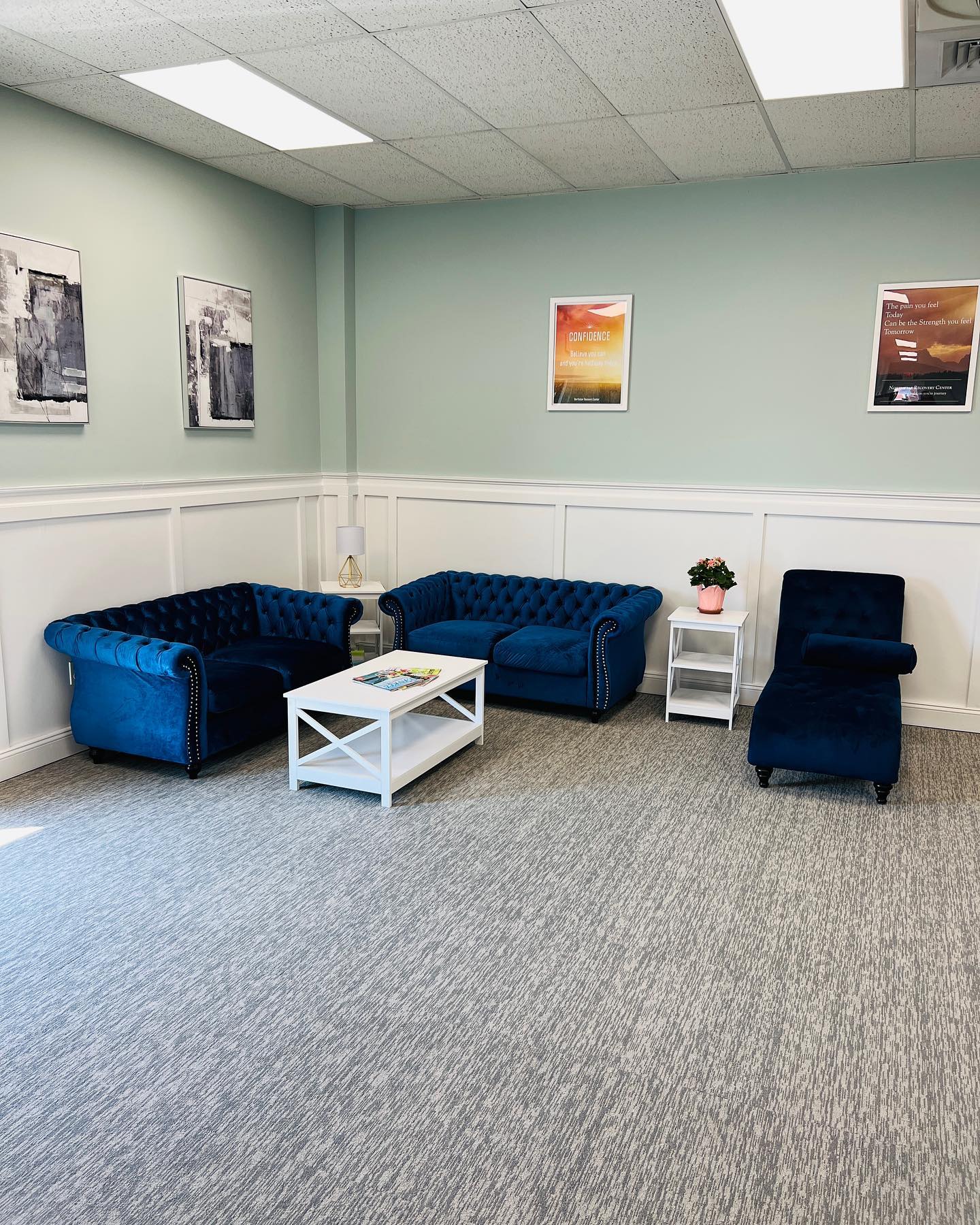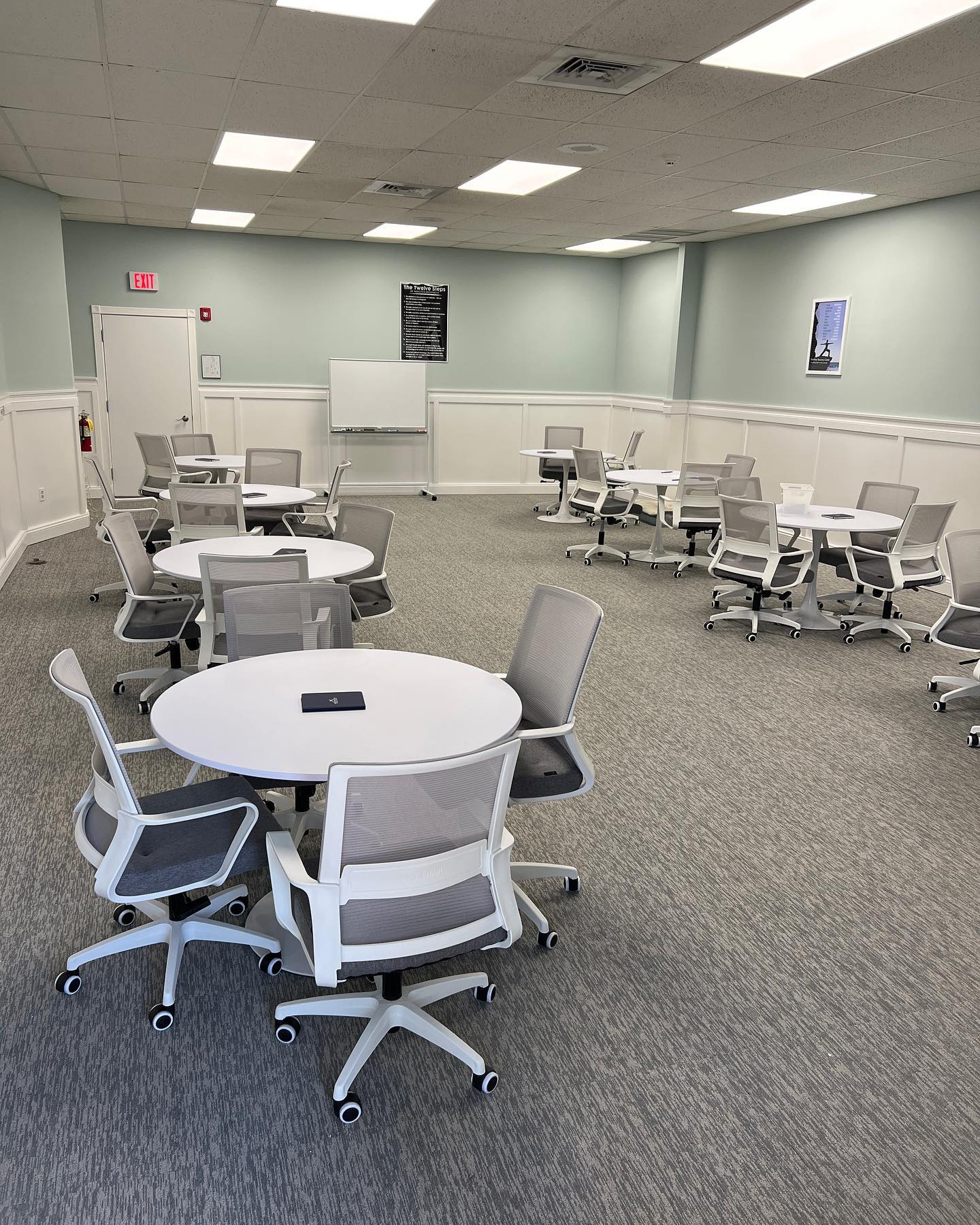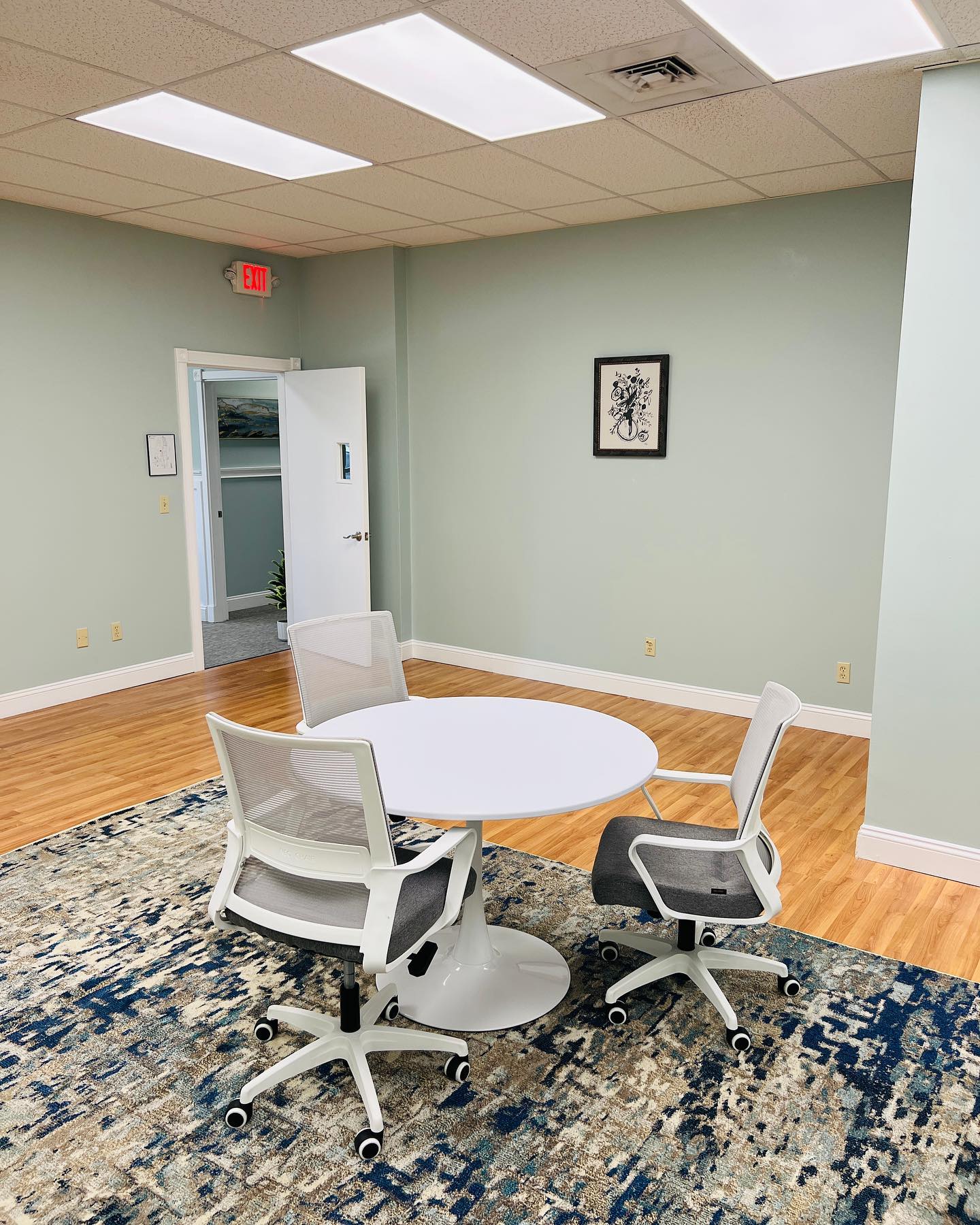
Outpatient Rehab: Balancing Life And Recovery In West Springfield, MA
Outpatient rehab provides individuals with a flexible treatment option that allows them to balance their recovery journey with the demands of daily life. In West Springfield, MA, outpatient rehab centers offer effective treatment for alcohol and drug addiction. Here’s a breakdown of what outpatient rehab entails and the benefits it offers.
Outpatient rehab is a form of treatment where individuals attend therapy sessions and receive support for their addiction while living at home. It allows individuals to continue with their daily responsibilities, such as work or school, while receiving the necessary treatment.
The benefits of outpatient rehab include:
- Flexibility in Scheduling: Outpatient rehab offers flexible scheduling options, allowing individuals to attend therapy sessions at times that work best for them.
- Opportunity for Continued Daily Life: Unlike inpatient rehab, where individuals stay at the facility full-time, outpatient rehab allows individuals to continue with their daily routines and responsibilities.
- Cost-Effective Option: Outpatient rehab is generally more affordable than residential treatment, making it a more accessible option for individuals seeking help for their addiction.
- Access to Support Networks: Outpatient rehab allows individuals to receive treatment while staying connected to their support networks, such as friends and family, which can be crucial for their recovery journey. For more information, visit outpatient rehab.
The outpatient rehab process typically involves an initial assessment and treatment planning, individual counseling sessions, group therapy sessions, medication management if applicable, and continued monitoring and support.
When choosing the right outpatient rehab in MA, it is important to research different rehab centers, consider specific needs and preferences, check licensing and accreditation, and read testimonials and reviews to ensure the quality of care.
In West Springfield, MA, both alcohol rehab programs and drug rehab programs are available to address specific addiction needs. Dual-diagnosis treatment options are available for individuals with co-occurring mental health disorders.
Balancing life and recovery in outpatient rehab requires creating a supportive living environment, managing work or school responsibilities, developing healthy coping strategies, and building a strong support network.
What Is Outpatient Rehab?
Outpatient rehab is a form of treatment for addiction that allows individuals to receive care while living at home and maintaining their daily responsibilities. It is a flexible and effective option for those seeking recovery from substance abuse issues.
What is Outpatient Rehab?
In outpatient rehab, individuals attend scheduled therapy sessions and receive support while still being able to continue with their daily lives. This type of treatment is suitable for individuals who have a strong support system at home and do not require 24/7 supervision.
What is Outpatient Rehab?
Outpatient rehab typically involves individual counseling sessions, group therapy sessions, and medication management if necessary. These therapies help individuals address the underlying causes of their addiction and develop coping strategies to prevent relapse.
One of the benefits of outpatient rehab is that it offers flexibility in scheduling. Individuals can attend therapy sessions at times that work best for them, allowing them to balance their work or school responsibilities. It is a cost-effective option compared to residential treatment, as individuals do not have to pay for accommodation or meals.
Outpatient rehab also provides access to support networks, where individuals can connect with others who are going through similar experiences. This support helps cultivate a strong network of individuals who understand and can provide encouragement and comfort during the recovery process.
What is Outpatient Rehab?
Outpatient rehab is an effective and accessible treatment option for individuals seeking recovery from addiction. It allows individuals to receive the necessary support while still maintaining their daily life and responsibilities. By participating in individual and group therapy sessions, individuals can address the underlying causes of their addiction and develop healthy coping strategies for long-term recovery.
Why is Outpatient Rehab an Effective Treatment Option?
Outpatient rehab is an effective treatment option for several reasons:
- Outpatient rehab provides individuals with flexibility in scheduling their treatment. Unlike inpatient rehab, where individuals need to reside at the facility, outpatient rehab allows individuals to attend treatment sessions while still being able to maintain their daily responsibilities, such as work or school. This flexibility ensures that individuals can receive the necessary treatment without disrupting their daily lives.
- Outpatient rehab offers individuals the opportunity for continued daily life. This means that individuals can continue to live at home and be part of their regular communities while receiving the necessary treatment. This can help individuals maintain a sense of normalcy and support their overall well-being.
- Outpatient rehab is a cost-effective option compared to inpatient rehab. Inpatient rehab requires individuals to cover the cost of room and board, which can be expensive. On the other hand, outpatient rehab allows individuals to receive treatment without incurring additional costs associated with residing at a facility.
- Outpatient rehab provides individuals with access to support networks. By attending therapy sessions and group sessions, individuals can connect with others who are going through similar experiences. This sense of community and support can enhance the effectiveness of the treatment and contribute to the individual’s overall recovery journey.
Outpatient rehab is an effective treatment option due to its flexibility in scheduling, opportunity for continued daily life, cost-effectiveness, and access to support networks. It provides individuals with the necessary treatment while allowing them to maintain their regular routines and responsibilities.
Benefits of Outpatient Rehab
Discover the incredible advantages of outpatient rehab in MA. From flexible scheduling to the opportunity for uninterrupted daily life, this form of treatment offers a cost-effective option for recovery. It grants access to vital support networks that aid in your healing journey. With outpatient rehab, you can maintain a balance between your responsibilities and recovery, paving the way to a healthier and happier life.
Flexibility in Scheduling
When considering outpatient rehab, one important factor to keep in mind is flexibility in scheduling.
1. Flexibility in scheduling enables individuals to conveniently attend therapy sessions and treatments at their preferred times. This is especially crucial for those with work or family obligations.
2. By offering the option to schedule therapy sessions at various times throughout the day, individuals can effectively balance their daily responsibilities while receiving the necessary treatment.
3. This flexibility also allows individuals to safeguard their privacy and maintain the confidentiality of their treatment if they wish. They can schedule sessions during hours when the likelihood of running into someone they know is lower.
4. Moreover, flexibility in scheduling ensures that individuals can receive the optimal amount of therapy based on their specific needs. Some individuals may require more frequent sessions, while others may benefit from less frequent ones.
5. The ability to schedule sessions at different times also caters to different preferences. Some individuals may prefer morning sessions to start their day on a positive note, while others may prefer evening sessions to unwind after a busy day.
6. Flexibility in scheduling allows individuals to incorporate outpatient rehab into their lives in a manageable and minimally disruptive way. It empowers them to prioritize their recovery while still fulfilling their other commitments and responsibilities.
Opportunity for Continued Daily Life
Continuing daily life while receiving outpatient rehab treatment offers individuals the opportunity for continued daily life. This treatment option allows individuals to maintain their regular routines and responsibilities instead of having to put life on hold and reside in a treatment center.
1. Managing work or school responsibilities: Outpatient rehab provides individuals with the opportunity to attend treatment sessions while still fulfilling their work or school commitments. This flexibility allows them to continue working towards their career goals or educational pursuits while receiving the necessary support and treatment for their recovery.
2. Maintaining relationships and support networks: By choosing outpatient rehab, individuals have the opportunity to continue to be present in their relationships and maintain their support networks. This option enables them to seek guidance and support from loved ones, which can significantly contribute to their overall well-being and recovery journey.
3. Engaging in recreational activities: Outpatient rehab offers individuals the chance to participate in recreational activities and hobbies that bring joy and fulfillment. This opportunity for continued engagement in activities promotes overall well-being and aids in building a balanced and fulfilling life.
4. Building a strong support network: Outpatient rehab allows individuals to connect with others going through similar experiences. Group therapy sessions and support groups offer a platform where individuals can share their stories, provide encouragement, and build a strong support network that continues beyond the treatment period.
5. Developing healthy coping strategies: Outpatient rehab provides individuals with the chance to learn and practice healthy coping strategies while facing real-life challenges. This opportunity for continued daily life enables individuals to implement these strategies in real time, enhancing their ability to manage stress, triggers, and cravings effectively.
Choosing outpatient rehab provides individuals with the opportunity for continued daily life, which promotes a balanced and sustainable approach to recovery. It allows individuals to maintain their responsibilities and relationships and engage in activities that bring fulfillment while receiving the necessary support and treatment for their recovery journey.
Cost-Effective Option
When choosing outpatient rehab, it is important to consider the cost-effective option. Here are some reasons why:
- Affordability: Outpatient rehab programs generally offer a more cost-effective option compared to inpatient programs. This is because patients do not have to pay for room and board or 24/7 supervision. It can be a budget-friendly choice for those seeking treatment without incurring high expenses.
- Insurance coverage: Outpatient rehab is often covered by insurance plans, making it a cost-effective option for individuals with insurance. It is important to check with your insurance provider to understand which services are covered and what expenses you may be responsible for.
- Reduced commuting costs: Outpatient rehab allows individuals to receive treatment while staying at home, eliminating the need for long-distance travel or temporary relocations. This helps save on transportation and accommodation costs.
- Flexibility in scheduling: Outpatient rehab offers scheduling flexibility, allowing individuals to attend treatment sessions around their existing commitments, such as work or school. This means there is no need to take extended periods off, reducing the financial impact of being away from work or other responsibilities.
- No additional living expenses: Unlike inpatient rehab, outpatient rehab does not require individuals to reside within a treatment facility. This means there are no extra living expenses like room and board fees, which contributes to its cost-effective nature.
Considering the cost-effective option can help individuals receive the necessary treatment for their recovery without placing a significant financial burden on them. It is important to weigh the cost alongside other factors, such as the quality of care and individual treatment needs, to make an informed decision about the best outpatient rehab program.
Access to Support Networks
When it comes to outpatient rehab, access to support networks plays a vital role in a person’s recovery journey. Here are some factors to consider regarding access to support networks:
- Group therapy sessions: Being part of a supportive group of individuals going through similar challenges can provide a sense of belonging and understanding. Group therapy sessions allow participants to share their experiences, learn from others, and receive encouragement and support.
- Individual counseling sessions: Having access to individual counseling sessions provides a safe and confidential space for individuals to address their specific needs and concerns. This one-on-one support allows for personalized guidance and the development of coping strategies.
- Peer support programs: Participating in peer support programs, such as Alcoholics Anonymous or Narcotics Anonymous, offers an opportunity to connect with individuals who have been through similar struggles. These programs provide a network of individuals who understand the challenges of addiction and can offer ongoing support and guidance.
- Family involvement: Involving family members in the recovery process can greatly enhance support networks. Family therapy sessions and educational programs can help families understand addiction and develop healthy communication and support strategies.
- Online communities and resources: Access to online support communities, forums, and resources can provide additional support outside of traditional therapy sessions. These platforms allow individuals to connect with others, share experiences, and access information and tools for ongoing recovery.
Having access to supportive networks not only reinforces the commitment to recovery but also provides individuals with the resources and encouragement needed to overcome challenges and maintain long-term sobriety.
Outpatient Rehab Process
Outpatient rehab holds the key to a balanced life and successful recovery in MA. The journey begins with an initial assessment and treatment planning, followed by personalized individual counseling sessions to uncover the root causes. Engaging in group therapy sessions fosters a supportive environment for shared experiences. Medication management plays a vital role in the healing process, while continued monitoring and support ensure long-term progress. Discover the transformative power of outpatient rehab as we navigate through these crucial steps together.
Initial Assessment and Treatment Planning
During the initial assessment and treatment planning phase of outpatient rehab, a thorough evaluation is conducted to determine the individual’s specific needs and create a personalized treatment plan.
- The assessment involves gathering information about the individual’s medical history, substance use patterns, and any co-occurring mental health disorders. This is done through interviews, questionnaires, and possibly medical tests.
- Based on the assessment, a treatment plan is developed that outlines the goals, strategies, and interventions that will be used to address the individual’s recovery needs. The plan takes into account factors such as the severity of the substance use disorder, the presence of any underlying mental health conditions, and the individual’s support network.
- The treatment plan may include various components, such as individual counseling sessions with a therapist who specializes in addiction treatment. These sessions provide a safe and confidential space for individuals to explore their thoughts, feelings, and behaviors associated with substance use.
- Group therapy sessions may also be part of the treatment plan. These sessions offer opportunities for individuals to connect with others who are facing similar challenges, share experiences, and learn from one another.
- Medication management is an important aspect of outpatient rehab for individuals who require pharmacological interventions to support their recovery. This may involve the prescription and monitoring of medications such as methadone or buprenorphine for opioid use disorder.
The initial assessment and treatment planning phase is crucial in guiding the course of outpatient rehab and ensuring that the individual receives the most appropriate and effective treatment to support their recovery journey.
Individual Counseling Sessions
Individual counseling sessions are an essential component of outpatient rehab. During these sessions, individuals participate in one-on-one therapy with a qualified counselor to address their specific needs and challenges related to substance abuse.
In individual counseling sessions, the counselor actively listens and provides guidance and support tailored to the individual’s unique circumstances. Through open and honest conversations, the counselor helps the individual gain insight into their addiction, explore underlying issues contributing to substance abuse, and develop strategies for recovery.
These sessions are highly personalized, allowing individuals to delve deeper into their emotions, thoughts, and behaviors surrounding substance abuse. They provide a safe and confidential space for individuals to express their concerns, fears, and desires for a sober life. The counselor works collaboratively with the individual to set achievable goals and develop an individualized treatment plan.
Individual counseling sessions play a vital role in cultivating self-awareness and promoting personal growth. They can boost an individual’s overall well-being by enhancing their understanding of addiction and providing them with tools to effectively cope with triggers and cravings. These sessions address co-occurring mental health disorders that may contribute to substance abuse.
It is important to note that the frequency and duration of individual counseling sessions may vary depending on the individual’s needs and progress in treatment. As individuals actively engage in these sessions, they have the opportunity to take ownership of their recovery journey and make positive changes in their lives.
Group Therapy Sessions
Group therapy sessions, an important component of outpatient rehab programs, offer numerous benefits for individuals seeking treatment for addiction.
Support: Participating in group therapy sessions provides individuals with a supportive environment where they can connect with others who are going through similar experiences. This sense of camaraderie and understanding can boost emotional well-being and enhance feelings of belonging.
Feedback: Group therapy allows individuals to receive feedback from their peers and the therapist facilitating the session. This feedback can help individuals gain new insights and perspectives on their behaviors and thought patterns, ultimately aiding in their recovery process.
Shared experiences: Through group therapy sessions, individuals can share their personal experiences, challenges, and successes. This sharing fosters a sense of community and cultivates a safe space for honest and open discussions.
Learning from others: Group therapy provides an opportunity for individuals to learn from the experiences and strategies of others. Hearing how others have overcome similar challenges can inspire individuals in their recovery journey.
Accountability: Group therapy sessions can promote accountability as individuals are encouraged to set goals, share progress, and hold each other accountable for their actions. This encouragement and support from peers can help individuals stay focused and motivated in their recovery.
Group therapy sessions play a crucial role in outpatient rehab programs by providing a platform for individuals to connect, share, learn, and grow alongside others who are on the same journey toward recovery.
Medication Management
- Medication management is a crucial aspect of outpatient rehab.
- It involves the proper administration and monitoring of medications prescribed for the treatment of substance abuse disorders.
- Effective medication management helps individuals achieve and maintain sobriety by addressing withdrawal symptoms, cravings, and other physical and psychological challenges.
- Medical professionals, such as doctors or nurse practitioners, play a key role in overseeing medication management in outpatient rehab.
- They assess each patient’s unique needs and prescribe medications that are safe and appropriate for their condition.
- Regular appointments are scheduled to monitor the effectiveness of the medications and make any necessary adjustments.
- Medication management also involves educating patients about their prescribed medications, including potential side effects and proper usage.
- Patients need to adhere to their medication regimen and follow all instructions provided by their healthcare providers.
- Medication management may involve psychological counseling to address any issues that may arise in relation to the medications.
- By effectively managing medications, individuals in outpatient rehab can better focus on their recovery journey and work towards long-term sobriety.
Continued Monitoring and Support
In outpatient rehab, continued monitoring and support are essential for ensuring the success of the treatment. Regular check-ins with healthcare providers, whether on a weekly, bi-weekly, or monthly basis, help track progress, address concerns, and make necessary adjustments to the treatment plan. Additionally, individual counseling sessions serve as a means of providing personalized guidance and support to clients, allowing them to discuss their challenges, progress, and goals with a trained therapist. These sessions aim to help clients overcome obstacles and maintain their recovery. Alongside individual counseling, group therapy sessions also contribute significantly to outpatient rehab. By creating a supportive environment, these sessions enable individuals to share experiences, learn from others, and develop coping strategies. Group therapy provides ongoing support and fosters connections with others facing similar situations. Emphasizing the significance of support networks, outpatient rehab encourages clients to connect with groups such as Alcoholics Anonymous or Narcotics Anonymous. These support networks offer additional guidance, support, and accountability outside of the treatment program, ensuring individuals stay motivated and committed to their recovery journey. Through continued monitoring and support via check-ins, counseling sessions, group therapy, and support networks, individuals can establish a solid foundation for long-term sobriety and overall well-being.
Choosing the Right Outpatient Rehab in MA
Are you on the lookout for the perfect outpatient rehab center in MA? Look no further! In this section, we’ll guide you through the process of finding the right outpatient rehab that suits your needs. We’ll cover everything from researching various rehab centers to considering your specific preferences. We’ll delve into the importance of checking licensing and accreditation and even provide insights from testimonials and reviews. Get ready to make an informed decision about your recovery journey in MA.
Researching Different Outpatient Rehab Centers
When researching various outpatient rehab centers, it is crucial to take into account multiple factors to ensure the optimal choice aligns with your specific needs and preferences. Here are some significant aspects to consider:
1. Location: It is advisable to seek centers that are conveniently situated, preferably in close proximity to your residence or workplace. This will facilitate regular attendance of treatment sessions.
2. Treatment Approach: It is essential to explore the different treatment approaches offered by various outpatient rehab centers. Some centers may specialize in specific therapies or provide alternative treatment options, such as holistic or evidence-based approaches.
3. Staff Qualifications: It is imperative to verify that the rehab center possesses qualified and experienced staff members, including licensed therapists, counselors, and medical professionals. This guarantees the delivery of high-quality care and support throughout your treatment journey.
4. Treatment Programs: It is vital to consider the diverse treatment programs provided by each center. Some centers may offer a range of programs tailored to meet various needs, such as individual counseling, group therapy, and specialized programs for specific substances or co-occurring disorders.
5. Insurance Coverage: It is prudent to check whether the outpatient rehab centers under consideration accept your insurance or offer affordable payment plans. This will assist in managing the cost of treatment without undue financial strain.
6. Success Rates: It is advisable to seek information regarding the success rates of the rehab centers you are evaluating. While success rates can vary, centers with higher success rates may indicate more effective treatment approaches and better outcomes for patients.
By conducting thorough research on different outpatient rehab centers and taking these factors into account, you can make an informed decision and select a center that best suits your requirements, thereby increasing your chances of successful recovery. Remember to reach out to each center for more specific information and to ask any questions you may have before finalizing your decision.
Considering Specific Needs and Preferences
When considering specific needs and preferences for outpatient rehab, it is important to take into account certain factors that can greatly impact the effectiveness of the treatment. These factors include the proximity of the rehab center to the individual’s home, the availability of specialized treatment programs, the flexibility of scheduling, and the level of personalized care provided.
| Factor | Importance |
|---|---|
| Proximity | The proximity of the rehab center to the individual’s home is crucial as it can determine the ease of access to treatment sessions and support services. |
| Specialized Programs | Individuals with specific needs or preferences, such as those seeking treatment for co-occurring disorders or requiring gender-specific programs, should consider rehab centers that offer specialized treatment options. |
| Scheduling Flexibility | The ability to schedule treatment sessions around personal and work commitments is essential for individuals who require flexibility in their daily lives. |
| Personalized Care | Ensuring that the rehab center provides individualized treatment plans tailored to the specific needs and preferences of each client is crucial for successful recovery. |
Considering these specific needs and preferences will help individuals make informed decisions when choosing the right outpatient rehab center for their recovery journey. By finding a center that aligns with their unique requirements, individuals can increase the likelihood of achieving long-term sobriety and overall well-being.
Checking Licensing and Accreditation
When selecting an outpatient rehab facility, it is vital to verify their licensing and accreditation to ensure the quality and credibility of their services. Here are some important factors to consider:
- Verified licenses: It is important to verify that the outpatient rehab center possesses the necessary licenses issued by relevant regulatory bodies, such as the state health department or substance abuse agencies.
- Accreditation: It is essential to look for accreditation from reputable organizations like the Commission on Accreditation of Rehabilitation Facilities (CARF) or the Joint Commission. Accreditation demonstrates that the center meets specific standards of excellence in care.
- Qualified staff: It is crucial to check if the rehab center employs licensed and certified professionals, including counselors, therapists, and medical staff. Having qualified staff ensures that you will receive proper treatment and care.
- Program accreditation: In addition to the overall center accreditation, it is important to ensure that the specific programs offered by the outpatient rehab center are also accredited. This guarantees that the treatment plans and approaches are based on evidence and proven to be effective.
- Compliance with regulations: It is essential to investigate any past or ongoing compliance issues or violations. It is important to check if the rehab center has faced disciplinary actions or has been involved in any malpractice lawsuits.
- Online resources: Utilizing online resources can be helpful in researching the outpatient rehab center. Look for testimonials and reviews from former clients to gain insights into their experiences.
By diligently checking the licensing and accreditation of an outpatient rehab center, you can have confidence in the quality of care and treatment provided, increasing the likelihood of a successful recovery journey.
Reading Testimonials and Reviews
When choosing an outpatient rehab center in MA, Reading testimonials and reviews is crucial to gather information from various sources and make an informed decision. Testimonials and reviews offer firsthand accounts from individuals who have undergone treatment at a particular rehab center, providing authentic feedback on the quality of care, staff professionalism, and overall experience. These testimonials and reviews also provide insight into the success rates of individuals who have completed treatment at a rehab center, indicating the center’s effectiveness in helping people recover from addiction.
Furthermore, by Reading testimonials and reviews, you can gain insights into the strengths and weaknesses of a rehab center, helping you assess if the center aligns with your specific needs and preferences. They also shed light on the treatment approach utilized by a rehab center, allowing you to determine if the approach is suitable for your recovery journey.
Additionally, testimonials and reviews frequently mention exceptional staff members who have made a positive impact on clients’ recovery journeys. Identifying such individuals can instill confidence in the rehab center’s ability to provide quality care.
Addressing Alcohol and Drug Rehab in MA
In the bustling town of West Springfield, MA, we’re diving into the realm of alcohol and drug rehab. Get ready to discover the various rehab programs available in this area and find out how they can help individuals reclaim their lives. From the comprehensive alcohol rehab programs to the effective drug rehab options, we’ll unravel the opportunities for recovery that exist in West Springfield. We’ll explore the exciting world of dual diagnosis treatment, offering a holistic approach towards healing. So let’s delve into the realm of rehab and restoration in West Springfield!
Overview of Alcohol Rehab Programs in MA
Alcohol addiction can be a serious problem that requires professional help for recovery. In West Springfield, MA, there are a variety of alcohol rehab programs available to assist individuals struggling with alcohol dependency.
Some key factors to consider when seeking an alcohol rehab program in MA are:
1. Treatment Approach: Different alcohol rehab programs may have varying treatment approaches. Some programs may focus on individual counseling sessions, while others may incorporate group therapy sessions. It is important to research and choose a program that aligns with your individual needs and preferences.
2. Dual Diagnosis Treatment: Many individuals with alcohol addiction also have underlying mental health disorders. It is important to find an alcohol rehab program in MA, that offers dual-diagnosis treatment options. This ensures that both the alcohol addiction and any co-occurring mental health issues can be addressed simultaneously.
3. Licensing and Accreditation: When choosing an alcohol rehab program, it is crucial to verify that the facility is licensed and accredited in MA. Licensed and accredited programs adhere to certain standards and regulations, ensuring that you receive quality care and treatment.
4. Success Rates and Testimonials: Reading testimonials and reviews from past clients can provide valuable insights into the effectiveness of an alcohol rehab program. Look for programs with positive success rates and testimonials from individuals who have completed the program and achieved long-term sobriety.
By considering these factors, individuals seeking alcohol rehab programs in MA can make an informed decision to find the best program that suits their needs and increases their chances of successful recovery.
Overview of Drug Rehab Programs in MA
Outpatient rehab programs in MA offer comprehensive drug addiction treatment options. These programs aim to provide individuals with the necessary support and resources to overcome their drug dependencies and pursue a healthier, drug-free life.
In West Springfield, MA, there are several drug rehab programs available to cater to different needs and preferences. These programs offer a range of services and therapies tailored to address the unique challenges faced by individuals struggling with drug addiction.
One of the key components of drug rehab programs in MA is individual counseling sessions. These sessions allow individuals to work one-on-one with experienced therapists who can provide guidance, support, and personalized treatment plans. Through individual counseling, individuals can explore the underlying causes of their addiction, develop coping strategies, and cultivate a strong foundation for recovery.
Group therapy sessions are also an integral part of drug rehab programs. These sessions provide individuals with the opportunity to connect with others who are going through similar experiences. Group therapy fosters a sense of community and support, allowing individuals to share their stories, gain insights from others, and learn from different perspectives.
Medication management is another essential aspect of drug rehab programs. Depending on the specific substance abuse issue, medications may be prescribed to help individuals manage withdrawal symptoms and cravings. This approach combines medication with counseling and therapy to enhance the effectiveness of the treatment.
Continued monitoring and support are critical in drug rehab programs in MA. After the completion of the program, individuals often receive ongoing support to ensure their continued sobriety. This may include regular check-ins, follow-up counseling sessions, and access to support networks such as support groups or outpatient support services.
Drug rehab programs in MA provide an overview of comprehensive treatment options designed to address the specific needs of individuals struggling with drug addiction. These programs offer counseling, therapy, medication management, and ongoing support to help individuals overcome their dependence, cultivate a healthier lifestyle, and achieve long-term recovery.
Dual Diagnosis Treatment Options
When it comes to dual-diagnosis treatment options in outpatient rehab, there are several effective approaches to consider:
- Medication-Assisted Treatment: This involves the use of medications to manage both the mental health disorder and the substance abuse disorder simultaneously. Medications like antidepressants, antipsychotics, and anti-anxiety medications may be prescribed alongside medications that help reduce cravings or withdrawal symptoms.
- Integrated Therapy: Integrated therapy combines mental health therapy and substance abuse counseling to address both conditions concurrently. This approach helps individuals understand the relationship between their mental health and substance abuse and develop healthier coping mechanisms.
- Support Groups: Joining support groups that specifically cater to individuals with dual diagnosis can provide a sense of belonging and understanding. These groups offer a safe space for individuals to share their experiences, offer support, and learn from others who are going through similar challenges.
- Psychoeducation: Dual diagnosis treatment options can involve learning about mental health disorders and addiction to gain a better understanding of how they interrelate. Through education, individuals can develop strategies and skills to manage both conditions effectively.
- Holistic Therapies: Incorporating holistic therapies such as yoga, meditation, art therapy, and mindfulness practices can enhance overall well-being and promote self-care. These therapies can improve mental health and help individuals develop healthy coping mechanisms.
Balancing Life and Recovery in Outpatient Rehab
Balancing life and recovery in outpatient rehab is all about creating a supportive living environment, managing work or school responsibilities, developing healthy coping strategies, building a strong support network, and finding the right balance between recovery and daily life. It’s a journey that entails navigating the challenges with resilience and embracing the benefits of outpatient rehab in MA. Let’s explore how individuals can achieve harmony and restoration while building a life of wellness and sobriety.
Creating a Supportive Living Environment
Creating a supportive living environment is crucial for individuals undergoing outpatient rehab. It is essential to establish a safe and sober space free from drugs, alcohol, or any triggers related to substance abuse. Removing any substances or reminders of past substance use minimizes temptation and supports recovery efforts. Additionally, positive relationships play a significant role in creating a supportive living environment. Surrounding oneself with supportive and understanding family members, friends, or roommates who are empathetic, non-judgmental, and willing to provide emotional support is vital. Establishing routines, such as setting regular sleep schedules, planning healthy meals, and incorporating physical exercise, can help maintain abstinence and reduce stress. Encouraging healthy habits, including maintaining a balanced diet, exercising regularly, and participating in stress-reducing activities like meditation or yoga, is also crucial. Moreover, providing accountability is an essential aspect of a supportive living environment. Having someone, such as a sponsor, therapist, or support group member, to hold individuals accountable for their actions and recovery goals can be valuable. By incorporating all of these key factors, a supportive living environment can be created to ensure individuals have the necessary support, structure, and stability needed to maintain abstinence and achieve long-term recovery.
Managing Work or School Responsibilities
Managing work or school responsibilities during outpatient rehab is essential for maintaining a balanced and successful recovery. In order to effectively manage your responsibilities, here are some strategies you can incorporate:
- Create a schedule: It is crucial to plan out your work or school tasks in advance and set specific deadlines. You can also break down larger tasks into smaller, manageable steps to make them more achievable.
- Prioritize tasks: Determine which tasks are most important and need to be completed first. Additionally, identify your key responsibilities and focus on those while still maintaining your recovery.
- Communicate with your employer or professors: Make sure to inform your employer or professors about your situation and explain your commitments to outpatient rehab. It is important to discuss potential accommodations or adjustments that can be made to support your recovery while fulfilling your responsibilities.
- Set boundaries: Establish clear boundaries between your work or school life and your recovery. It is crucial to avoid taking on additional responsibilities or tasks that could overwhelm you and potentially jeopardize your recovery.
- Ask for support: Whenever needed, reach out to your support network, including friends, family, or counselors, for assistance or guidance. They can provide help with managing stress or offer advice on balancing your work or school responsibilities.
- Take care of yourself: Prioritize your physical and mental well-being by taking regular breaks and practicing self-care activities. Engage in activities that help reduce stress and boost your overall well-being.
Remember, managing work or school responsibilities while in outpatient rehab requires organization, effective communication, and self-care. With the right strategies in place, you can successfully juggle your responsibilities while maintaining your recovery journey.
Developing Healthy Coping Strategies
When undergoing outpatient rehab, it is vital to focus on developing healthy coping strategies as they play a crucial role in maintaining sobriety and overall well-being. Here are several key strategies to consider:
- Identify triggers: Take the time to recognize the individuals, places, or situations that might tempt you to resort to using drugs or alcohol. By understanding your triggers, you can effectively prepare yourself to deal with them.
- Practice stress management techniques: Discover and adopt healthy ways to manage stress, such as engaging in deep breathing exercises, meditation, or participating in physical activities like yoga or jogging. These techniques can effectively alleviate stress without relying on substance abuse.
- Build a support network: Surround yourself with positive influences, such as supportive friends, family members, or individuals who are also recovering. They can provide the necessary encouragement, understanding, and guidance during challenging times.
- Engage in self-care activities: Prioritize self-care as a means to enhance your physical, mental, and emotional well-being. This can include ensuring that you get enough sleep, maintaining a balanced diet, pursuing hobbies, practicing mindfulness, or even seeking therapy.
- Develop healthy coping mechanisms: Discover and adopt healthy alternatives to substance use that can provide similar benefits. For example, if you used drugs or alcohol to relax, consider engaging in activities like listening to music, taking a bath, or practicing relaxation techniques instead.
- Learn effective communication skills: Healthy communication is paramount in expressing your needs, setting boundaries, and resolving conflicts. By improving your communication skills, you can build healthier relationships and successfully navigate challenging situations.
By actively incorporating these strategies into your daily life, you can cultivate resilience, enhance your recovery journey, and achieve long-term sobriety.
Building a Strong Support Network
Building a strong support network is essential for successful recovery in outpatient rehab. Here are some important factors to consider:
- Reach out to family and close friends who can provide emotional support and encouragement throughout your journey. Building a strong support network involves connecting with loved ones who can be there for you.
- Join support groups such as Alcoholics Anonymous or Narcotics Anonymous, where you can connect with others who are going through similar experiences and have already made progress in their recovery. These support groups play a crucial role in building a strong support network.
- Utilize online forums and communities dedicated to addiction recovery, where you can find support, share your struggles, and receive guidance from others who have been in your shoes. These platforms can help you expand your support network.
- Consider meeting with a therapist or counselor who specializes in addiction recovery. They can provide valuable guidance and help you develop coping strategies to navigate challenges. Seeking professional help is an important part of building a strong support network.
- Attend outpatient rehab sessions regularly and actively participate in group therapy sessions. Building connections with fellow peers who understand your journey can provide a sense of belonging and comfort. This is another way to strengthen your support network.
- Explore alternative support networks such as faith-based groups or community organizations that offer resources and assistance to individuals in recovery. These networks can supplement your existing support system.
- Engage in self-care practices to cultivate a strong support network within yourself. This can involve practicing mindfulness, setting boundaries, and prioritizing your well-being. Remember, building a strong support network also means taking care of yourself.
- Be open to seeking professional guidance from addiction specialists, who can provide personalized advice and support based on your unique circumstances. These specialists can further enhance your support network.
Remember, building a strong support network during outpatient rehab is crucial for maintaining long-term sobriety and promoting overall well-being.
The Benefits of Outpatient Rehab in MA
Outpatient rehab in MA offers several benefits for individuals seeking addiction treatment and recovery in the state of MA.
Outpatient rehab in MA provides flexibility in scheduling. This means that individuals can attend treatment sessions while still managing their daily commitments, such as work or school in the state of MA. This flexibility allows for a seamless integration of recovery into one’s daily life in MA.
Outpatient rehab in MA offers the opportunity for continued daily life in the state of MA. Unlike inpatient programs, individuals can stay at home and maintain their personal responsibilities while attending treatment in MA. This ensures that recovery is not disruptive to one’s social and familial connections in MA.
Outpatient rehab in MA is a cost-effective option compared to inpatient programs in the state of MA. It allows individuals to receive quality treatment while avoiding the high costs associated with residential care in MA. This makes it a more accessible choice for many who may have financial limitations in MA.
Outpatient rehab in MA provides access to support networks in the state of MA. Individuals can participate in group therapy sessions where they can connect with others facing similar challenges in MA. This support network fosters a sense of community and accountability, which enhances the recovery process in MA.
In West Springfield, MA, the benefits of outpatient rehab extend beyond the treatment itself. It allows individuals to find balance between recovery and daily life, enabling them to cultivate a supportive living environment, manage their work or school responsibilities, develop healthy coping strategies, and build a strong support network in MA.
Outpatient rehab in MA provides numerous advantages for individuals seeking addiction treatment and recovery in the state of MA, ensuring a holistic approach to their well-being and long-term sobriety.
Finding Balance Between Recovery and Daily Life
Finding a balance between recovery and daily life is crucial for individuals going through outpatient rehab. It is vital to prioritize both recovery and daily responsibilities in order to maintain a healthy and productive lifestyle. Here are some key strategies for finding this equilibrium:
- Creating a supportive living environment: Surround yourself with a positive and understanding support system can greatly enhance your recovery journey. Ensure that your living environment is conducive to this by communicating your needs and boundaries to your loved ones.
- Managing work or school responsibilities: It is important to strike a balance between your recovery and your work or school commitments. This can be achieved by setting realistic goals, prioritizing tasks, and seeking support from your employer or educational institution if needed.
- Developing healthy coping strategies: Finding healthy outlets to cope with stress and emotions is essential in maintaining balance. Engage in activities such as exercise, meditation, or hobbies that bring you joy and help you relax.
- Building a strong support network: Connect with others who are also in recovery or have a similar understanding of your journey. Joining support groups or attending therapy sessions can provide a sense of community and encouragement.
- Setting boundaries: Identify your limits and assertively communicate them to others. This includes saying no to requests or situations that may jeopardize your recovery or overwhelm you.
By implementing these strategies, individuals can successfully find a balance between their recovery and daily life. It is important to remember that everyone’s journey is unique, so finding what works best for you is key. Stay committed, seek support when needed, and remain focused on your goals.
Frequently Asked Questions
1. How can SMART Recovery help me balance life and recovery?
SMART Recovery offers a program that focuses on self-directed action and cognitive science-based tools to help individuals overcome addiction. By providing free resources, practical information, and free mutual support meetings, SMART Recovery aims to support individuals in maintaining a balanced and healthy life while in recovery.
2. What is the SMART Insiders+ program, and how can I join?
The SMART Insiders+ program is a way for individuals to support SMART Recovery’s resources and volunteers. By making a recurring donation, participants can join the program and receive a medallion as a symbol of their commitment to helping others live a life beyond addiction.
3. Does SMART Recovery offer any mobile apps to support recovery?
Yes, SMART Recovery offers a mobile app that individuals can use to continue their recovery journey on the go. Additionally, they have the Checkup & Choices App, a clinically validated tool developed in collaboration with SMART for recovery success.
4. Is SMART Recovery a non-profit organization?
Yes, SMART Recovery is a non-profit organization. All proceeds from their programs and resources go towards supporting their fight against the addiction epidemic in America.
5. Can family members or friends seek help from SMART Recovery?
Absolutely. SMART Recovery is open to helping family members or friends seeking help for their loved ones. They provide support and resources to assist in understanding addiction and recovery.
6. How can I get involved with SMART Recovery’s initiatives?
SMART Recovery is always looking for volunteers to join their Organizational Culture, Diversity, Equity, and Inclusion (OCDEI) Committee. Additionally, they are accepting conference proposals for their upcoming 30th Anniversary Conference. You can reach out to SMART Recovery to express your interest in getting involved.
Why Northstar Recovery Center is Your Best Choice for Addiction Treatment in Southborough and West Springfield, MA
A Legacy of Expertise and Compassion
At Northstar Recovery Center, we bring years of expertise to the table. Our team of medical professionals and addiction specialists is dedicated to providing the highest level of care.
Comprehensive Treatment Programs
Whether you’re looking for inpatient or outpatient services, detoxification, or specialized programs for women, we offer a wide range of options tailored to meet your needs.
Individualized Care
We understand that each individual’s journey to recovery is unique. That’s why our treatment plans are customized to fit your specific needs and challenges.
State-of-the-Art Facilities
Our centers in Southborough and West Springfield are equipped with the latest technology and amenities to make your stay as comfortable as possible.
Building Trust and Lasting Recovery
We believe in building a relationship of trust with our patients. Our ultimate goal is to guide you toward a sustainable and lasting recovery.
Community and Support
At Northstar Recovery Center, you’re not just a patient; you’re part of a community. We offer ongoing support to ensure your long-term success.
Contact Us Today
If you or a loved one is struggling with addiction, don’t hesitate to reach out. Northstar Recovery Center is here to help you take the first step towards a better life.





 Alcohol rehab centers in Massachusetts offer a comprehensive approach to treatment. This means they address not just the physical aspects of addiction, but also the psychological, social, and behavioral aspects. Treatment typically involves a combination of detoxification, therapy, medication (if needed), and aftercare planning.
Alcohol rehab centers in Massachusetts offer a comprehensive approach to treatment. This means they address not just the physical aspects of addiction, but also the psychological, social, and behavioral aspects. Treatment typically involves a combination of detoxification, therapy, medication (if needed), and aftercare planning. Facing alcohol addiction can be daunting, but remember, with the right assistance and treatment plan, it’s entirely possible to triumph over it and radically transform your life. Alcohol rehab centers in Massachusetts, especially Northstar Recovery Center, provide all the necessary resources, mentorship, and encouragement required to enable this life-changing transformation. Remember, recovery is not a destination, it’s a lifelong journey, and every single journey starts with a simple yet crucial step. Don’t wait another day. Act now. Contact Northstar Recovery Center and take that decisive first step today.
Facing alcohol addiction can be daunting, but remember, with the right assistance and treatment plan, it’s entirely possible to triumph over it and radically transform your life. Alcohol rehab centers in Massachusetts, especially Northstar Recovery Center, provide all the necessary resources, mentorship, and encouragement required to enable this life-changing transformation. Remember, recovery is not a destination, it’s a lifelong journey, and every single journey starts with a simple yet crucial step. Don’t wait another day. Act now. Contact Northstar Recovery Center and take that decisive first step today.
 Substance abuse is a significant challenge that affects communities across the United States, and cities like Springfield, MA, and Boston, Massachusetts are no exception. For years, individuals and families in these areas have been grappling with the devastating effects of alcohol and drug addiction. Today, however, a new beacon of hope rises in Springfield – Northstar Recovery Center.
Substance abuse is a significant challenge that affects communities across the United States, and cities like Springfield, MA, and Boston, Massachusetts are no exception. For years, individuals and families in these areas have been grappling with the devastating effects of alcohol and drug addiction. Today, however, a new beacon of hope rises in Springfield – Northstar Recovery Center. Alcohol is the most commonly abused substance in Springfield, Massachusetts
Alcohol is the most commonly abused substance in Springfield, Massachusetts The journey to recovery can be challenging, but at Northstar Recovery Center, we believe that everyone has the capacity to overcome addiction and transform their lives. Our expert team of addiction specialists is dedicated to guiding our clients on this path, providing comprehensive, individualized treatment and unwavering support every step of the way.
The journey to recovery can be challenging, but at Northstar Recovery Center, we believe that everyone has the capacity to overcome addiction and transform their lives. Our expert team of addiction specialists is dedicated to guiding our clients on this path, providing comprehensive, individualized treatment and unwavering support every step of the way.
 Trauma is a term used to describe experiences that are profoundly distressing or disturbing, events that leave a deep and indelible mark on an individual’s psyche. These events could range from a single, life-altering incident to a series of recurrent episodes that persist over a significant period. Such experiences, while varied in their nature, all share the commonality of having the capacity to deeply affect an individual’s mental, physical, and emotional well-being, often leaving lasting impacts that permeate various facets of their lives.
Trauma is a term used to describe experiences that are profoundly distressing or disturbing, events that leave a deep and indelible mark on an individual’s psyche. These events could range from a single, life-altering incident to a series of recurrent episodes that persist over a significant period. Such experiences, while varied in their nature, all share the commonality of having the capacity to deeply affect an individual’s mental, physical, and emotional well-being, often leaving lasting impacts that permeate various facets of their lives. One of the pivotal aims of trauma-informed care is the fostering of resilience. Recognizing the strength and determination it takes to confront past traumas and to embark on the path to recovery, this approach actively nurtures the inherent resilience within each individual. Through this process, it encourages individuals to harness their inner strength, inspiring them to persevere even in the face of setbacks and challenges.
One of the pivotal aims of trauma-informed care is the fostering of resilience. Recognizing the strength and determination it takes to confront past traumas and to embark on the path to recovery, this approach actively nurtures the inherent resilience within each individual. Through this process, it encourages individuals to harness their inner strength, inspiring them to persevere even in the face of setbacks and challenges.